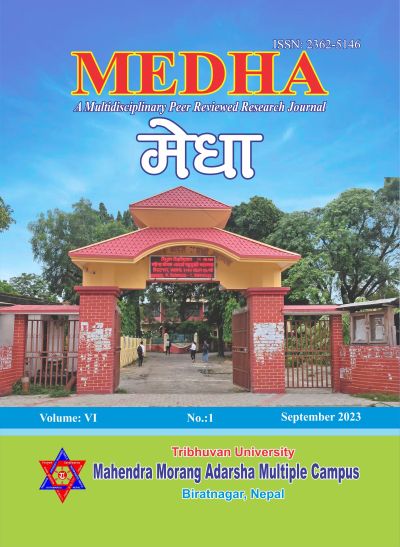Impact of Rural Municipality Program on Women Empowerment in Surkhet
DOI:
https://doi.org/10.3126/medha.v6i1.63956Keywords:
Women empowerment, rural municipality, domestic violence, economic empowerment, poverty reductionAbstract
Women empowerment is the process of generating a building capability of women to exercise control over their own life. Women play active roles in household and community decision-making, and families are better able to address the difficulties of poverty, enhance family health and well-being, and boost income. Therefore, this article aims to analyze the impact of rural municipality programs on women’s empowerment activities and discover how this empowerment activity of women is making an impact on poverty reduction. This study adopts cross-sectional survey research methods and a quantitative study design. To achieve the goals of the study, both primary and secondary data were utilized. Data from the research region was gathered using a standardized questionnaire. Sample size for this study comprises 265 from four rural municipalities of the Surkhet district. The results showed that increasing income can be achieved by empowering women. Income and empowerment are positively correlated. In contrast, r = 0. 431 and p = .000. Further empowerment and poverty also have a significant relationship which is r = 0.509 and p-value .000. Further, it was also found that rural municipality programs and empowerment were correlated. Programs run from rural municipalities and poverty had a significant result. The family, society, and nation must all support them in their position. To do this, the local government should create gender-inclusive policies and programs.
Downloads
Downloads
Published
How to Cite
Issue
Section
License
This license enables reusers to distribute, remix, adapt, and build upon the material in any medium or format for noncommercial purposes only, and only so long as attribution is given to the creator.




